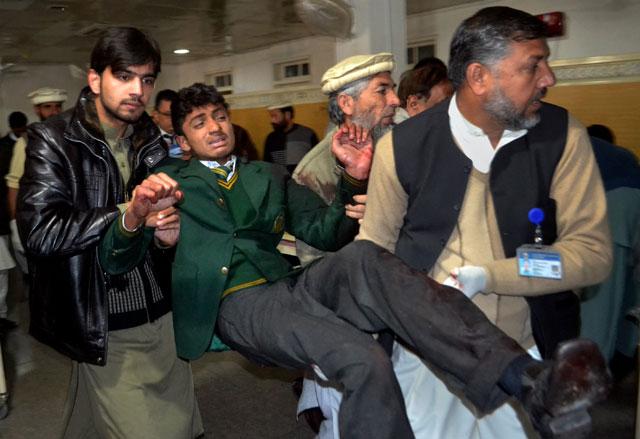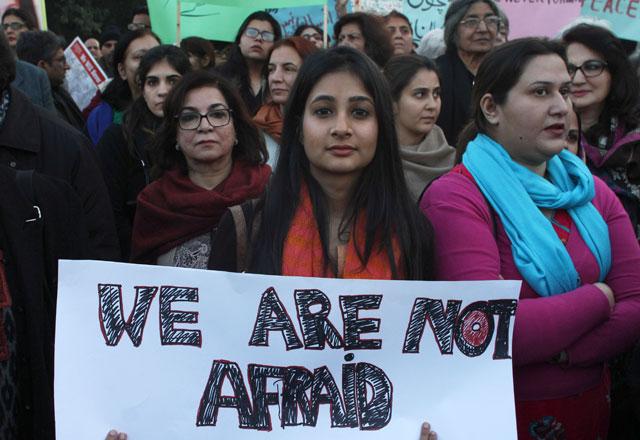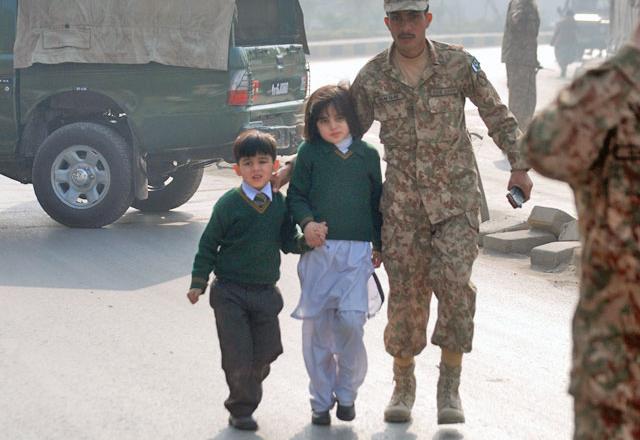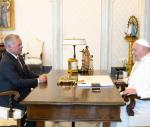You are here
Pakistan vows revenge one year after Taliban school massacre
By AFP - Dec 16,2015 - Last updated at Dec 16,2015
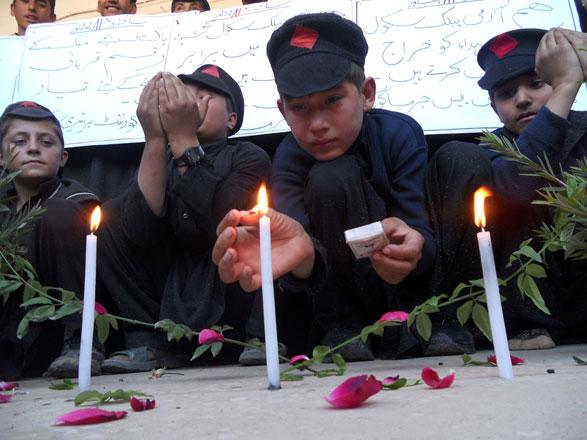
A Pakistani student lights a candle to mark the first anniversary of the Peshawar school massacre which left more than 150 people dead at a government school in Kohat on Wednesday (AFP photo)
PESHAWAR, Pakistan — Pakistan's leader, speaking beneath portraits of children killed by Taliban bullets, called Wednesday for vengeance as the country marked the first anniversary of a school massacre that killed 151 people in its worst-ever extremist attack.
Families of the victims along with military and political leaders attended an emotional ceremony at the army-run school in the northwestern city of Peshawar to mark the assault, which mostly claimed the lives of schoolchildren and has been termed a "mini-9/11" for the country.
Relatives were accompanied by students bearing images of their loved ones as they spoke one by one of children with bright smiles who worried about their hair and handwriting but had dreams of being artists and engineers.
Many of the parents broke down on seeing students in the Army Public School uniforms, an AFP reporter said.
"My children, today I make this promise to you, that I will take revenge for every drop of your blood," Prime Minister Nawaz Sharif said, addressing the victims directly.
But angry and distraught parents told AFP nothing could bring back their children, with many reiterating calls for a judicial inquiry into the security failings that led to the attack.
"They can't stop the tears of my wife," said Jamal Abdul Nasir, breaking down into tears himself as he remembered his son Awais. "We want nothing, only justice."
At least a dozen families boycotted Wednesday's ceremony in protest.
Army chief Raheel Sharif and opposition leader Imran Khan also attended the ceremony. A military official told AFP there were some 2,500 guests including celebrities and sports stars.
"We think a lot about the students who lost their lives," Abu Bakar, a teacher who was shot three times as he threw himself in front of fleeing children during the siege, told AFP, saying the loss was "something that cannot be described".
Groups in other major cities organised their own vigils, while on social media, many Pakistanis changed their profile pictures to an image depicting an APS uniform with a bloody bullet hole and a caption reading: "Some stains don't wash out."
Hardened resolve
The Taliban have said they carried out the attack, in which all nine gunmen died, in retaliation for an army offensive on extremists in the tribal areas.
But the attack hardened public opinion against extremism and prompted a military-led crackdown that has improved security. This year is on course for the fewest deaths linked to extremist violence since 2007, the year the Pakistani Taliban were formed.
Sharif said he hoped the day was "not very far when these terrorists will be eliminated forever and every corner of Pakistan will be a place of peace and prosperity".
However critics say there are no long-term steps to eradicate extremism.
"We're halting the growth of the cancer but not addressing why we keep getting it," lawyer and activist Mohammad Jibran Nasir told AFP.
The sweeping crackdown on extremism also included the wider reinstatement of the death penalty, resulting in more than 300 hangings, though critics have complained Pakistan's weak justice system depends too heavily on often forced confessions.
Rights groups Amnesty International and Human Rights Watch Wednesday slammed the executions, calling on Pakistan to re-instate a moratorium that was in place between 2008 and 2014.
In Peshawar residents held their own ceremonies and candlelit vigils as the area around the school was designated a red zone, with army helicopters hovering as hundreds of soldiers guarded main junctions.
One year on, a veneer of normality has returned to the Peshawar school, where children play while soldiers stand atop recently fortified walls.
But the trauma lingers for many, with parents of the slain children saying they are still seeking answers about how the security apparatus could have failed them so completely.
"I only want an answer to my question... Why did the state fail to protect my child?" said one parent who would only identify himself as the father of Hamid Ali Khan.
Parents also protested at a later ceremony organised by the provincial government, demanding an inquiry as Imran Khan tried to speak.
In August, after a military trial behind closed doors, the army announced that six militants linked to the Peshawar assault would be executed, while a seventh was given a life sentence. Four were hanged on December 2.
Teachers and students told AFP that education was their best revenge.
"The Taliban want us to quit our studies and become ignorant like them," 13-year-old Uzair Khan told AFP.
"We don't want to do that. God willing, we will continue our education, move forward and avenge them."
Related Articles
Taliban insurgents stormed an army-run school in Pakistan on Tuesday, killing at least 141 people, almost all of them children, in Pakistan's bloodiest ever terror attack.
One month on from a Taliban school massacre in Peshawar that left 150 dead a new movement is growing among marginalised urban liberals rallying to "Reclaim Pakistan" from violent extremism.
It began like any other morning in Pakistan's Army Public School in the northwestern city of Peshawar. Students pored over their books. Teachers ruffled through their notes and gave lectures.


